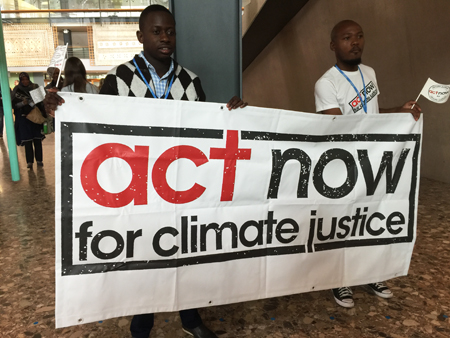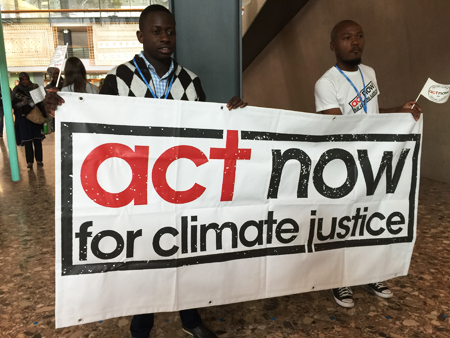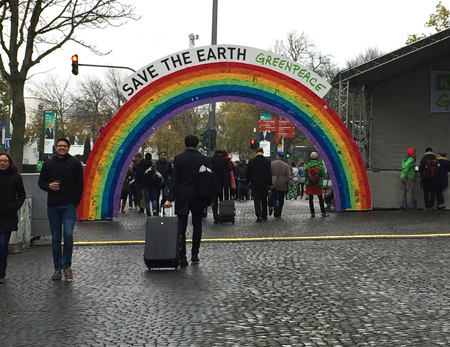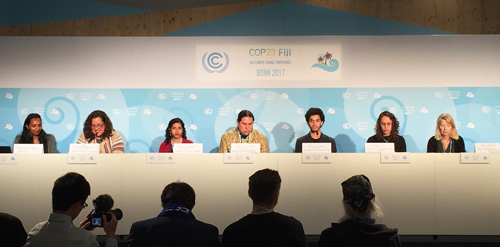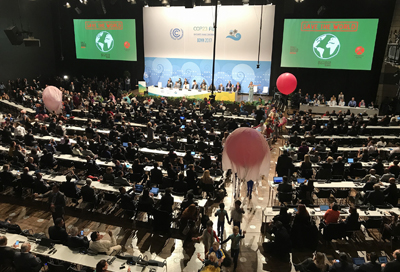Insurance Industry Bows to UN Scheme
Not Much to Brag About After First Week’s Meetings
 Property rights are foundational to American liberty. Our Declaration of Independence reads, “We hold these truths to be self-evident: that all men are created equal; that they are endowed by their creator with certain unalienable rights; that among these are life, liberty, and the pursuit of happiness....” The “pursuit of happiness” is interchangeable with property rights.
Property rights are foundational to American liberty. Our Declaration of Independence reads, “We hold these truths to be self-evident: that all men are created equal; that they are endowed by their creator with certain unalienable rights; that among these are life, liberty, and the pursuit of happiness....” The “pursuit of happiness” is interchangeable with property rights.
These powerful words continue to serve as a model for the rest of the world, yet they are anathema to the United Nations as stated in its Preamble of the Habitat I conference in 1976: “Land...cannot be treated as an ordinary asset, controlled by individuals and subject to the pressures and inefficiencies of the market. Private land ownership is also a principal instrument of accumulation and concentration of wealth and therefore contributes to ‘social injustice’...Public control of land use is therefore indispensable....”
These opposing ideals clashed at the UN’s climate change meeting taking place in Bonn, Germany, where a three-member panel, introduced by a representative from the United Nations University, discussed “climate risk” insurance.
Panelists included the executive director of the Munich Climate Insurance Initiative created as a “charitable organization by representatives of insurers, research institutes and non-governmental organizations in April 2005, in response to the growing realization that insurance solutions can play a role in adaptation to climate change, as suggested in the UN Framework Convention on Climate Change and the Kyoto Protocol.”
The Institute for Climate and Sustainable Cities in the Philippines, another panelist, “works to advance climate action enshrined in the Paris climate agreement. It is also known for research and innovation-driven projects aimed at accelerating the deployment of sustainable energy systems in the Philippines.”
The third panelist, the “Allianz Climate Solutions as of 2014, is the world's largest insurance company, the largest financial services group and the largest company according to a composite measure by Forbes magazine, as well as the largest financial services company when measured by 2013 revenue.”
“Climate Risk" insurance is to cover “loss and damage” due to climate events, such as typhoons and floods, but panelists deceptively used free market rhetoric while advocating socialism. Let me explain.
Weather events have historically rendered heavier damages on people and properties in undeveloped countries, mostly because poor countries are ruled by corrupt governments that do not allow private property rights, nor do they make it a priority to improve infrastructure that could minimize storm affects on their citizens and properties. In spite of these facts, the insurance industry bowed to the anti-property rights UN.
The way it works is that money from the developed world goes into one of several UN funds. The “Adaptation Fund,” for example, received $50 million Euros from Germany on the opening day of this conference and is expected to receive more pledges before its conclusion. Another called the “Green Climate Fund” is to transfer $100 billion annually by 2020 from developed to undeveloped nations. And if the Carbon Tax is implemented, which is the UN’s goal, then it would have TRILLIONS to redistribute. It is no wonder that the panelists were eager to partner with the UN.
When asked to contrast the hurricane’s impact on Houston, Texas, where homeowners purchased insurance, with those in undeveloped countries where property rights and insurance coverage are foreign ideas, the response was classic socialism: “Even the poor and uninsured care for their families,” and “It’s a moral responsibility.” In other words, the industry is willing to prop up the corrupt governments that deprive their citizens of property rights and safer infrastructure, while calling it familial “care” and a “moral responsibility.” In reality, it is a greedy industry wanting a closer relationship with the UN and its potential TRILLIONS at the poor’s expense.
The bottom line is that the insurance industry’s “climate risk” coverage is not insurance at all, but rather a new way for it to link with the UN’s largess to redistribute wealth to corrupt governments that deny their citizens property rights and refuse to make infrastructure improvements that could save lives and lessen storm damages.
Since 1997, I have watched more and more companies and governments set aside liberty and free market principles, and sell out to the UN climate change agenda. Unsurprisingly, these meetings are now the UN’s largest annual meetings.
Not Much to Brag About After First Week’s Meetings
Americans should be pleased that the first week’s negotiations in Bonn proved that President Trump was correct to remove the U.S. from the Paris Agreement, which amounted to Obama’s unilateral sell-out at the UN’s 2015 meeting. America’s low profile in Bonn is likewise the right thing to do. The U.S. does not have an elaborate display like in years past, a welcome pause in American pandering that had become increasingly elaborate since the 1997 meeting in Kyoto, Japan. And U.S. negotiators are not hosting press conferences, which robs the world’s press of opportunities to take cheap shots.
Leaders at this COP, Conference of the Parties, just reported the first week’s accomplishments: a gender action plan and an indigenous peoples action plan. Nazhat Shameem Khan, Fiji’s chief negotiator, excitedly said the gender inclusion “changes global governance.” The other so-called accomplishment is an increased “relevance” of the Adaptation Fund, due to the German $50 million Euros and pledges for more money expected during the second week.
This conference is to conclude on Friday, November 17. In the past, negotiations have extended into the weekend, but due to the lack of U.S. pandering at this meeting, it just may conclude as scheduled on Friday. We will see.



